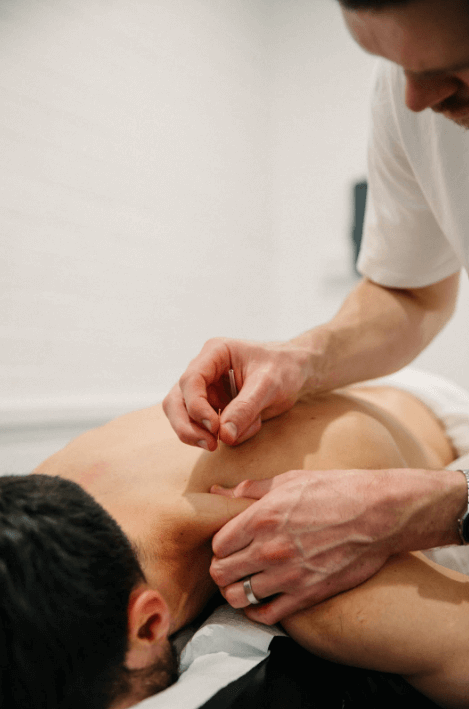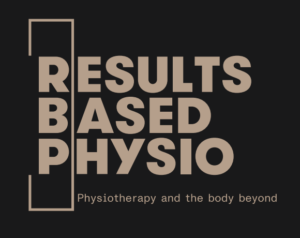Physical and mental wellbeing are well documented to be inextricably linked. Therefore it can be assumed that physiotherapists play an important role in the maintenance of their clients’ mental health.
People who are injured or in pain may not be able to complete their daily tasks or enjoy their leisure activities. The inability to live pain free and independently can have detrimental effects on someone’s mental health and heighten stress and frustration. Physiotherapists ensure that their clients function at the highest level of physical performance possible, which allows them to undertake their daily tasks more easily and restore their quality of life.
PAIN AND MENTAL HEALTH
Chronic pain can impair someone’s ability to work, affect their relationships and negatively impact sleep, so it is not surprising that those living with chronic pain are at higher risk of developing mental health disorders such as anxiety and depression. In addition to these external consequences of chronic pain conditions, living with the constant sensation of pain is upsetting and frustrating on its own. The longer chronic pain goes untreated, the more likely it becomes that the patient will develop depression, therefore it is extremely important for those with chronic pain to seek help as soon as possible.
Untreated chronic pain can also accelerate the decay of brain tissue. This may be due to the constant sleep disturbances associated with chronic pain, which limit the amount of rest the brain is allowed. New cells are created to replace damaged brain tissue while the brain is at rest, therefore decreasing rest time can inhibit these natural repair processes and brain cells deteriorate faster than they can regenerate. This decline, known as cerebral atrophy, can contribute to seizures and dementia as well as general degradation of brain function.

Physiotherapy and other allied health treatments can be hugely effective against chronic pain conditions. Enlisting the professional help of an allied health practitioner early in your chronic pain experience can decrease the likelihood of depression developing by mediating pain symptoms and therefore making life easier. Furthermore, developing a clear plan for treatment including specific goals can help patients regain a sense of hope and reduce anxiety about their future living with a chronic condition.
HOW TREATMENT HELPS
Manual therapy can have a positive impact on sleep quality, which is important for thinking, learning, function and memory. Poor sleep quality and insomnia have also been linked to mental health disorders such as depression, seasonal affective disorder and anxiety. Stimulation of the muscles and skin during manual therapy triggers the release of neurotransmitters Serotonin, Dopamine and Acetylcholine. These chemicals are involved in the Parasympathetic nervous system, commonly referred to as the “rest and digest” system. When chemical signalling in this system is high, a number of processes are initiated such as decreasing heart rate and breathing rate, increasing digestive function and decreasing Cortisol release. Cortisol is the primary stress hormone in the body and is important for the regulation of sleep and wake cycles. When cortisol release is elevated, due to physical or emotional stress, sleep is interrupted or less effective. Cortisol can also decrease inflammation, which sounds great but it can actually slow recovery as inflammation is an important part of the body’s healing process.
Manual therapy also directly stimulates the vagus nerve; one of the major signalling pathways associated with the Parasympathetic nervous system. Sustained vagal stimulation builds tone on the nerve and therefore allows subsequent signals to transfer around the body faster. This ultimately results in faster relaxation and anxiety reduction as tone improves.

Some studies have shown an increase in endorphin release as a result of needling treatments. Endorphins are naturally occurring neurotransmitters that activate opioid receptors and are associated with pain and stress relief pathways. Additionally, circulating endorphins also trigger the release of other hormones that bolster mental health such as dopamine. Studies have found that many mental health disorders such as depression, anxiety, dementia and alzheimers are all linked to low circulating endorphin levels and stimulating their release may result in some relief from symptoms of these illnesses.

Exercise is also an important factor in maintaining a healthy lifestyle, and physiotherapy allows people to exercise safely and effectively. Exercise results in the release of endorphins and oxytocin. Oxytocin is a hormone secreted by the hypothalamus which acts as a neurotransmitter throughout the body. Oxytocin release is associated with increased social activity and relationship formation, decreased fear and anxiety responses and reduced cortisol release. Each of these outcomes are beneficial for our mental health and many studies have reported the positive effect regular exercise can have on individuals with mood disorders, anxiety, chronic stress and can even decrease the likelihood of burnout. Furthermore, practitioners can prescribe an individualised exercise regime so that even people experiencing pain or low mobility can reap the benefits of exercising.
As our scientific knowledge grows, it is becoming increasingly obvious that every aspect of our health is interconnected and we must tend to our body and mind in order to have the best chance at happiness. Therefore mental health treatment is relevant for every health practitioner, not just psychologists.
REFERENCES
Cochran, D. M., Fallon, D., Hill, M., & Frazier, J. A. (2013). The role of oxytocin in psychiatric disorders: a review of biological and therapeutic research findings. Harvard review of psychiatry, 21(5), 219–247.
Greer, T.L., Trombello, J.M., Rethorst, C.D., Carmody, T.J., Jha, M.K., Liao, A., Grannemann, B.D., Chambliss, H.O., Church, T.S. and Trivedi, M.H. (2016), IMPROVEMENTS IN PSYCHOSOCIAL FUNCTIONING AND HEALTH-RELATED QUALITY OF LIFE FOLLOWING EXERCISE AUGMENTATION IN PATIENTS WITH TREATMENT RESPONSE BUT NONREMITTED MAJOR DEPRESSIVE DISORDER: RESULTS FROM THE TREAD STUDY. Depress Anxiety, 33, 870-881
Aylett, E., Small, N. & Bower, P. (2018). Exercise in the treatment of clinical anxiety in general practice – a systematic review and meta-analysis. BMC Health Serv Res 18, 559
Nehra, A. (2022). How Does Long-Term Chronic Pain Impact the Mental & Physical Health?. Respect Care Givers. Sourced from; https://respectcaregivers.org/how-does-long-term-chronic-pain-impact-the-mental-physical-health/
Thau L, Gandhi J, Sharma S. (2021). Physiology, Cortisol. StatPearls, Treasure Island (FL),. Sourced from: https://www.ncbi.nlm.nih.gov/books/NBK538239/
Mikkelsen, K., Stojanovska, L., Polenakovic, M., Bosevski, M., & Apostolopoulos, V. (2017). Exercise and mental health. Maturitas, 106, 48–56.


